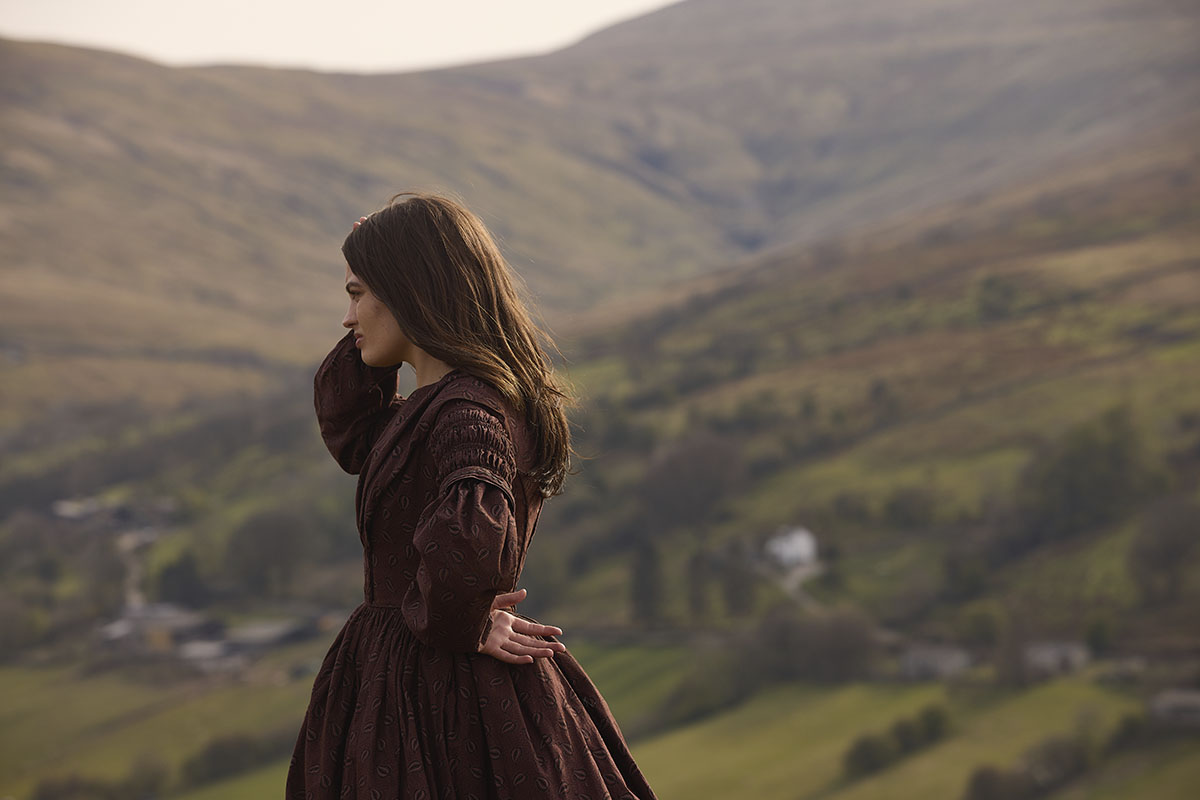 m.a.g.
m.a.g.

CINE.EMILY
A film by Frances O’Conner
Emily Brontë was a mysterious woman and writer, who lived a short life, leaving us only with her masterpiece: Wuthering Heights.
Frances O’ Conner transforms Emily Brontë (played by Emma Mackey) in a modern, free-thinking, rebellious woman of flesh and blood in her debut film Emily. This is not a Biopic, or a documentary, what we have on our hands is a free interpretation of Emily’s life guiding us through the breath-taking and incredibly rainy Yorkshire landscapes. The film shows her sorrows, her joys, her romance and her road to Wuthering Heights. The film is sparkled with references of the book, and emulates a similar tone of mystery and tragedy. Initially I was surprised by how modern her story felt and how much I could relate to her. It shows a woman who wants to have “freedom of thought”, and who feels like an outsider in her society as well as in her own family, but manages to find her own voice by staying true to herself. On the other hand, O’Conner shows us a three-dimensional character, who has faults and can be cruel, as well as shy and envious. The film explores the complicated relationship between her and her sisters, and her very close friendship to her brother (played by Fionn Whitehead), which was equally a blessing and a curse.
Emily is a love story that explores how tragedy fuels creativity. Her love interest is a priest, who’s initially intrigued by her. Both fall into a lustrous romance, that opens up Emilie’s own sexuality and her exploration of romance and lust. One has to say, that we don’t know if this really happened, but O’Conner chose to create this fictitious romance between this two people, giving us another layer of Emily.
Leaving the cinema, I had a feeling of nostalgia ¿What would have happened if she would have continued writing? ¿Which other masterpieces would we have gotten? But at the same time, there was a sense of happiness in the knowledge that we got to see a glimpse of her life, which showed a complex human being, and a writer,
who’s story was heard.
Words: Daniela Univazo
